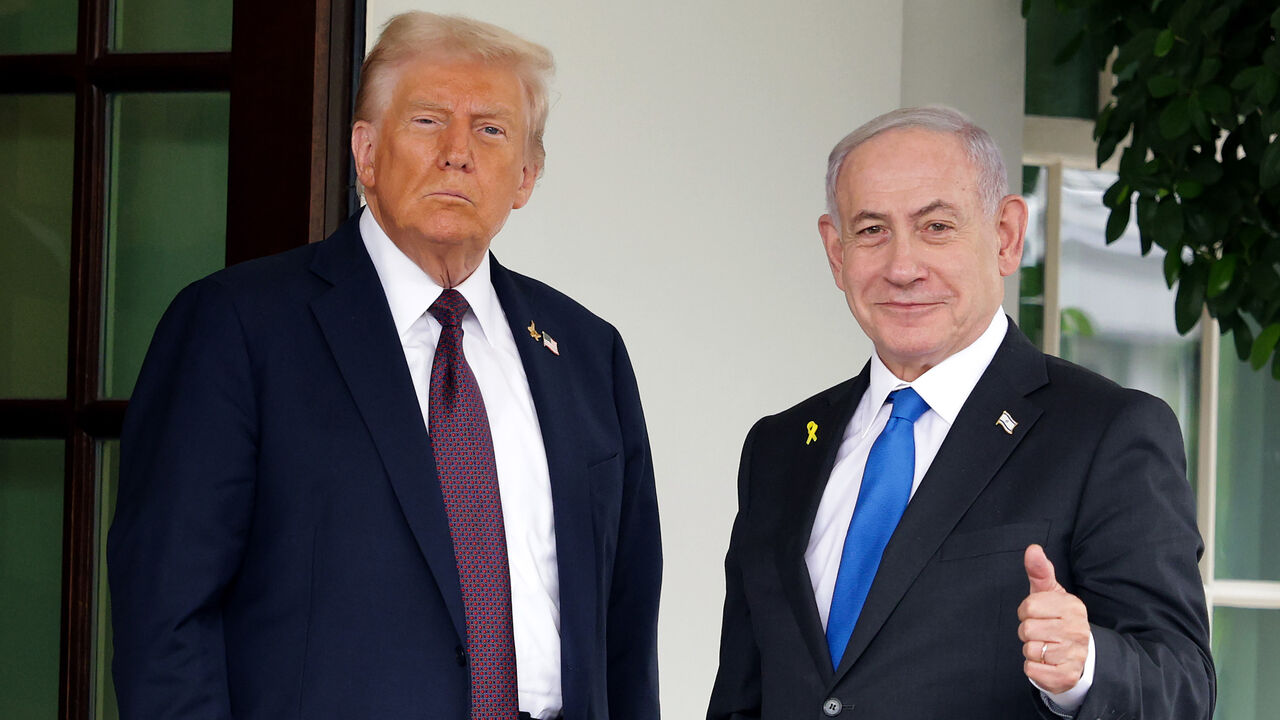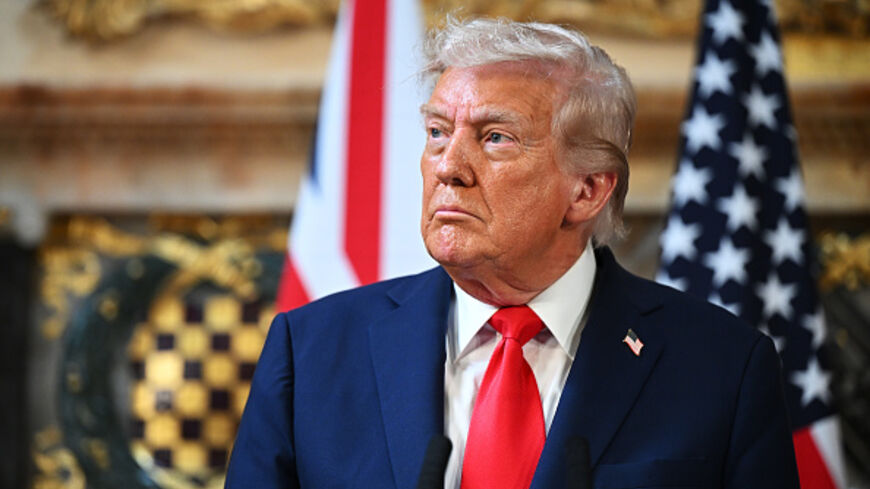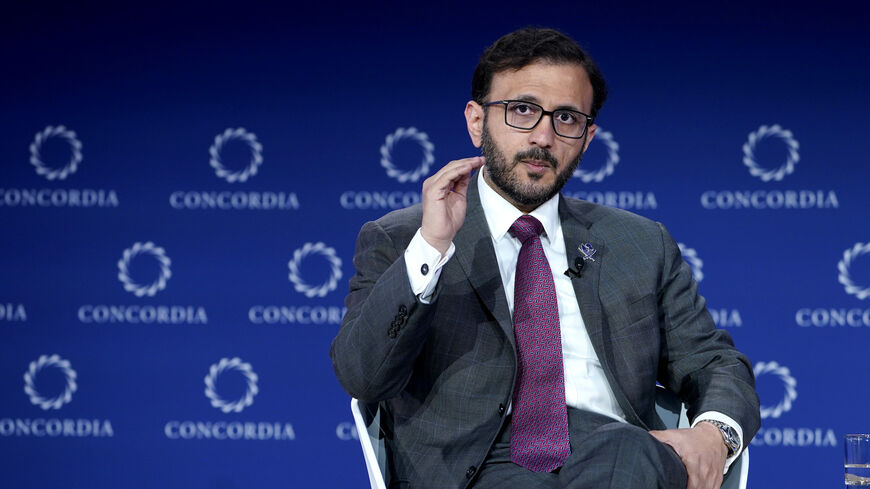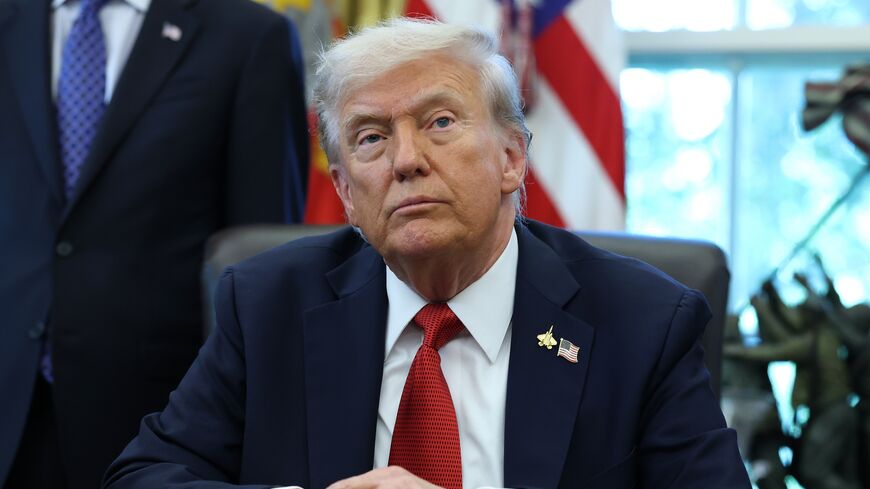Trump says Netanyahu has agreed to deal to end Gaza war
Hamas has not responded to the peace plan, which would require the group to disarm and release the remaining hostages.

WASHINGTON — President Donald Trump announced on Monday that a deal has been reached with Israeli Prime Minister Benjamin Netanyahu to end the war in the Gaza Strip and free the remaining hostages.
Hamas has yet to formally respond to the plan, which would require it to disarm. Trump said Israel would have his “full backing” to eliminate the militant group if it rejects the framework.
"I hope that we're going to have a deal for peace," Trump said in joint remarks alongside Netanyahu. "If Hamas rejects the deal — which is always possible, they're the only one left. Everyone else has accepted it — but I have a feeling that we're going to have a positive answer."
Netanyahu described the plan as one that achieves Israel’s war aims.
“It will bring back to Israel all our hostages, dismantle Hamas' military capabilities, end its political rule and ensure that Gaza never again poses a threat to Israel,” Netanyahu said in his prepared remarks, adding that Israeli troops will maintain a “security perimeter for the foreseeable future.”
The 20-point plan, which the Trump administration published Monday, involves an immediate ceasefire, the withdrawal of Israeli troops and the release of the remaining living and dead hostages within 72 hours of Israel publicly accepting the agreement.
Israel will then release 250 Palestinian prisoners serving life sentences as well as 1,700 Palestinians who were detained in Gaza over the past two years. For every deceased Israeli hostage whose remains Hamas releases, Israel will release the remains of 15 deceased Gazans.
Once the agreement takes effect, “full aid will be immediately sent” to Gaza through the United Nations, its agencies and the Palestine Red Crescent Society. A panel of experts will develop a plan to “rebuild and energize Gaza,” where the United Nations estimates 78% of buildings have been damaged or destroyed in the war.
Hamas members who “commit to peaceful coexistence” and decommission their weapons will be given amnesty under the deal. Safe passage will be provided to members of Hamas who wish to leave Gaza for third countries.
The framework proposes a governance plan that excludes Hamas, which violently wrested control of Gaza from its rival Fatah in 2007. In its place, a “technocratic, apolitical Palestinian committee” made up of qualified Palestinians and international experts would handle day-to-day services in Gaza.
The committee would be overseen by a “Board of Peace,” chaired by Trump and including former British Prime Minister Tony Blair and other to-be-announced heads of state, until the Palestinian Authority (PA) implements the necessary reforms to govern Gaza.
“If the Palestinian Authority does not complete the reforms that I laid out in my vision for peace in 2020, they'll have only themselves to blame,” Trump said.
The US proposal also keeps open the prospect of a future Palestinian state, suggesting that after Gaza’s reconstruction and reforms by the PA, “conditions may finally be in place for a credible pathway to Palestinian self-determination and statehood, which we recognize as the aspiration of the Palestinian people.”
Netanyahu firmly opposes a Palestinian state, the creation of which he said Monday would "reward terrorism, undermine security and endanger Israel's very existence."
President Donald J. Trump’s Comprehensive Plan to End the Gaza Conflict:
— Rapid Response 47 (@RapidResponse47) September 29, 2025
1. Gaza will be a deradicalized terror-free zone that does not pose a threat to its neighbors.
2. Gaza will be redeveloped for the benefit of the people of Gaza, who have suffered more than enough.
3. If… pic.twitter.com/veqhr9MW28
Netanyahu arrived at the White House less than a week after he vowed in his address to the United Nations General Assembly that Israel would “finish the job” against Hamas, whose attack on Oct. 7, 2023, killed some 1,200 people, mostly civilians, and led to the abduction of 251 others. Israeli authorities believe 20 of the 48 remaining hostages are still alive.
Israel’s retaliatory military campaign in Gaza has killed more than 66,000 people, according to Palestinian health officials who do not distinguish between civilians and combatants but say the majority of the dead are women and children.
On Sept. 16, the Israeli military began a full-scale ground offensive in Gaza City, forcing hundreds of thousands of Palestinians to flee southward from what it says is one of Hamas’ final strongholds. A majority of Gaza’s population of more than 2 million people has been displaced by the two-year war, many uprooted multiple times.
In February, Trump drew international outrage for suggesting Palestinians in Gaza be forcibly relocated to neighboring countries when the war ends. His current plan, however, “will encourage people to stay and offer them the opportunity to build a better Gaza.”
The Hostages and Missing Families Forum, an Israel-based advocacy group, hailed Trump’s plan as a “historic turning point” and urged the international community to pressure Hamas into accepting the deal.
Israeli opposition leader Yair Lapid also endorsed the plan in a statement Monday. But Netanyahu will likely encounter resistance from his far-right coalition partners who have threatened to quit his government over a deal that stops short of Hamas’ total defeat.
The leaders of several Arab and Muslim-majority countries discussed the US proposal in a closed-door meeting with Trump in New York last week. Qatari Foreign Ministry spokesperson Majed al-Ansari told Al-Monitor on Thursday that the plan was a “very ambitious” attempt to resolve the conflict.
Monday’s announcement came after a three-way call with Trump, Netanyahu and Qatari Prime Minister Mohammed bin Abdulrahman Al Thani, during which the Israeli premier apologized for the airstrike on Sept. 9 that targeted Hamas leadership in Doha. A 22-year-old Qatari security official was killed in the strike, along with five lower-ranking Hamas members.
In a joint statement Monday, the foreign ministers of Egypt, Jordan, the United Arab Emirates, Indonesia, Pakistan, Turkey, Saudi Arabia and Qatar welcomed Trump’s proposal to end the war, as well as his announcement last week that he would prevent Israel from annexing the occupied West Bank.
This developing story has been updated since initial publication.



